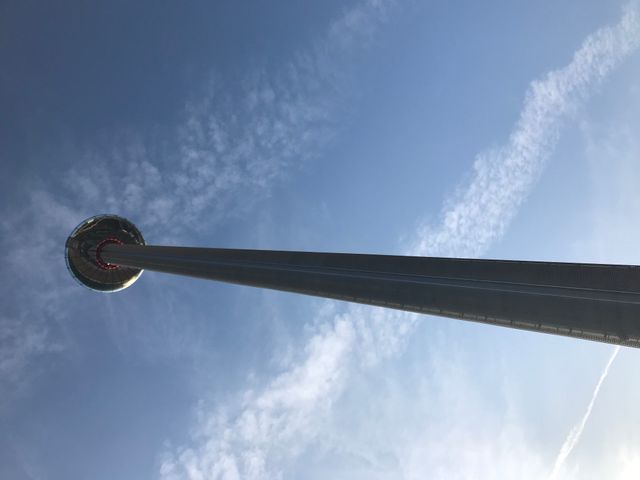The UK’s Worker Protection Act came into force last October; now is the time for all employers to act.
When I agreed to descend from the Brighton i360 (a structure 450 feet/138 metres off the ground) outside the pod to raise money for the Samaritans, I kind of expected that exiting the pod would be adrenalised. It was.
In that moment, I wasn't really thinking too much - just focussing on getting down. Now, in the post-abseil calm, there are few lessons about feeling the fear (and doing it anyway):
- We need eye contact and authentic human connection. I am grateful to the professional, confident man who diligently and routinely checked all my safety stuff. It was clear this was his day job; nothing to worry about here. I didn’t ask his name. I regret that. I wasn’t up to curiosity at that moment.
- Voice is a powerful fear regulator. He conveyed with his level tone and steady pace that all was well. It mattered so much more than the words he used.
- The body keeps the score. No matter what I ‘knew’ about how secure the harness was, my legs were going to shake and I wasn’t going to be able to will myself to stop them. It was strangely calming to notice that, and just accept it.
- Being with a team who 'get it' really helps. Thirty of us were, for this purpose, united. It mattered that they understood.
- The doing is so much better than the waiting. Once you’re underway, anxiety often drops away sharply. It's helpful to hold on to that knowledge in the build up to a fear-provoking event.
The sixth thing, and the biggest surprise? Landing was the worst. Not the physical act of landing. That was fine. But I hadn’t anticipated the people. I hadn’t thought it through. I hadn’t realised there was (literally) a spotlight on me. I felt stupid for not anticipating that the supporters would be watching. Lovely people suddenly hugging me and cheering. Did I want to take the microphone and say a few words to the crowd? No thank you. Glass of sparkling wine? Not now thanks. I was overwhelmed by a powerful need to be quiet and alone.
Turns out we have different types of comfort zone. Introverts can do abseiling....but the rest? Not so much.
I couldn’t have been in better company. The best thing about Samaritans is that they are utterly understanding and non-judgemental. I slipped quietly away to re-regulate my breathing.
If you’d like to donate to the Samaritans' abseil fundraiser, it’s not too late: https://www.justgiving.com/fundraising/alison-best4
Related Articles

How to give constructive feedback (and how to receive it)

Workplace dynamics - Seven trends in 2024 employers need to address





